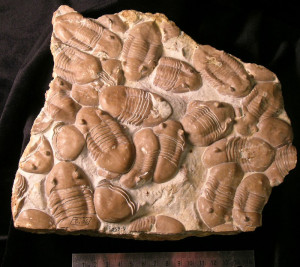Code of Fossil Collecting

Photo courtesy of the Peabody Museum of Natural History, Yale University, New Haven, Connecticut, USA.
The Constitution of The Paleontological Society (Article I) states
“The sole purpose of the Society shall be, and all of its assets and earnings shall be exclusively devoted to, the advance of the science of Paleontology.” In order to pursue this goal, the Society recognizes that:
- The principal importance of fossils is for scientific, scholarly, and educational use of both professionals and amateurs.
- The numbers of specimens of fossils vary widely but certain fossils in all taxonomic groups are rare and that conserving and making available for study significant fossils and their contextual data is critical.
- To leave fossils uncollected assures their degradation and ultimate loss to the scientific and educational world through natural processes of weathering and erosion.
The Society therefore adopts the following practices associated with the collection and curation of fossils:
- Prior notification will be made and permission or appropriate permits will be secured from landowners or managers of private or public lands where fossils are to be collected.
- All collections will be in compliance with federal, tribal in the case of Native American lands, state, and municipal laws and regulations applied to fossil collecting.
- The collector(s) will make every effort to have fossil specimens of unique, rare, or exceptional value to the scientific community deposited in or sold to an appropriate institution that will provide for the care, curation, and study of the fossil material.
The Paleontological Society adopts this Code of Fossil Collecting in keeping with the goals of the Society’s Constitution.
|